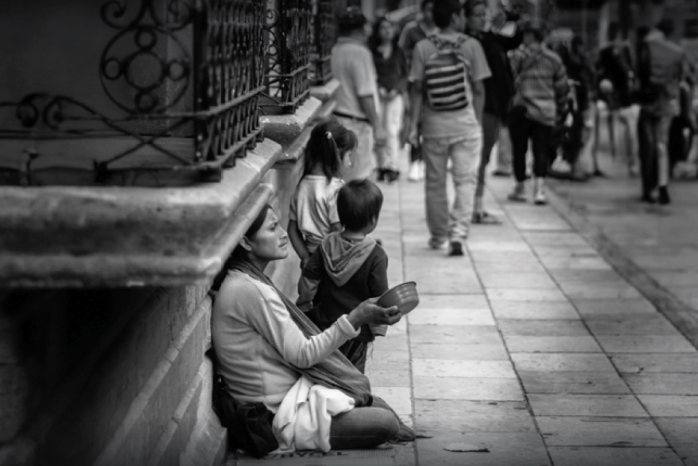We know that economic and social inequalities in Latin America are among the highest in the world. And these inequalities are not only a hallmark of the region, but have also been a drag on its own development. These inequalities are increasingly characterized by high levels of concentration of income and wealth in the hands of a few. Faced with this tragic situation, how much are Latin American governments doing?
In the vast majority of Latin American countries, the top 10% of the population captures about half or more of the national income, according to the World Inequality Database of the World Inequality Lab, a joint initiative of the Paris School of Economics and the University of Berkeley. In Brazil, the figure is 56.8%, in Peru 57% and in Colombia 60%, while in most developed countries the figure is usually around one third. Something similar or even worse happens with wealth: the richest 10% of the population captures more than 60% of the national wealth. And in some countries, such as Brazil, close to 80%.
According to Oxfam International’s recent EconoNuestra report, the richest 1% of the population would account for nearly 43.5 out of every 100 dollars of total wealth in 2022, while the poorest half of the population must make do with only 0.8 out of every 100 dollars. In other words, the wealthiest individuals possess 55 times more wealth than the poorest half of the population. Meanwhile, 183 million people live in poverty in Latin America.
The limited redistributive capacity of Latin American governments
A fundamental reason why inequality remains high is the limited effectiveness of Latin American governments in redistributing wealth. There are several things a state can do to reduce inequalities, starting with providing all its citizens with opportunities for education, health, job placement and business creation. The legal framework, starting with labor legislation (including minimum wages) also plays a crucial role. But more in the short term, states redistribute through taxes (a priori higher for the richest) and direct transfers (a priori to the poorest). In Latin America, these systems, including taxation and social spending, are still deficient.
To assess the direct redistributive capacity of a state, economists compare inequality before and after state intervention. That is, inequality before and after the collection of taxes and direct transfers. This is done by comparing the Gini coefficient of income distribution (zero for maximum equality and one for maximum inequality) before and after taxes and transfers.
In much of the world, we tend to find a significant reduction in inequality after taxes and transfers. In most European countries, not only is inequality lower, but the reduction after state intervention is high. In countries like Spain and France, state intervention can reduce the Gini coefficient by up to 0.15 and in countries like Sweden and Denmark, the reduction exceeds 0.2. These differences pre vs. post government action (absolute redistribution), demonstrate the impact of progressive systems that distribute wealth from the richest to the poorest.
In many Latin American countries, on the contrary, state action is practically nil and inequality hardly changes after state intervention. In Peru, for example, income inequality before state action has fallen remarkably in recent years, from values close to 0.6 (among the highest in the world) to values of 0.45. However, state action seems limited, with an absolute redistribution of half a tenth.
Something similar happens in Colombia, with a redistribution that in some years has been nil. In Brazil, unlike Peru, the Gini before taxes and transfers remains close to 0.6, but after state intervention it falls by one tenth, being with Uruguay one of the countries with the greatest impact on absolute redistribution (thus calculated as the difference between the pre- and post-tax and transfer Gini).
Increasing concentration of wealth and the need for redistributive reforms
For the aggregate of 23 Latin American and Caribbean countries, the figures are discouraging. Recently, there has been a stagnation in the reduction of inequality that had been occurring since the beginning of the century. And state action does not seem to significantly favor redistribution.
In these countries, the redistributive capacity of governments is weak and wealth is increasingly concentrated in the hands of the richest. This, coupled with ever-increasing profits.
The situation is worrying and brings back to the political forefront the need for redistributive reforms in the region, often debated and almost always ineffective. In this line, Oxfam’s report joins the calls for tax reforms in the region and for a “New Latin-Caribbean Social Pact” structured around three priorities: the strengthening of public policies for social protection; progress towards the universalization of public services, and the promotion of public resources to meet the costs posed by these challenges.
And this will require a greater contribution effort from the region’s large companies and fortunes. Until now, the scarce redistributive effort in Latin American countries has fallen on the middle classes, with the wealthy monopolizing an ever greater proportion of income and wealth. Hence, the emphasis on the need to increase the contribution of the richest and of large corporations, since the latter can contribute to the reduction of inequality both directly and indirectly. Directly, for example, by providing quality jobs with fair wages, or by investing in local communities, improving infrastructure and basic services. Indirectly, by contributing more to public coffers, allowing for increased public social spending.
In the midst of a changing political cycle in many Latin American countries, we must remember that every effort to reduce inequalities, as well as to increase redistribution, improves not only social cohesion, but also, as several studies have shown, economic sustainability and development in general. Therefore, the fight against inequality not only remains a pending task, but must be a priority for the governments of our region.
*Translated by Janaína Ruviaro da Silva from the original in Spanish.














